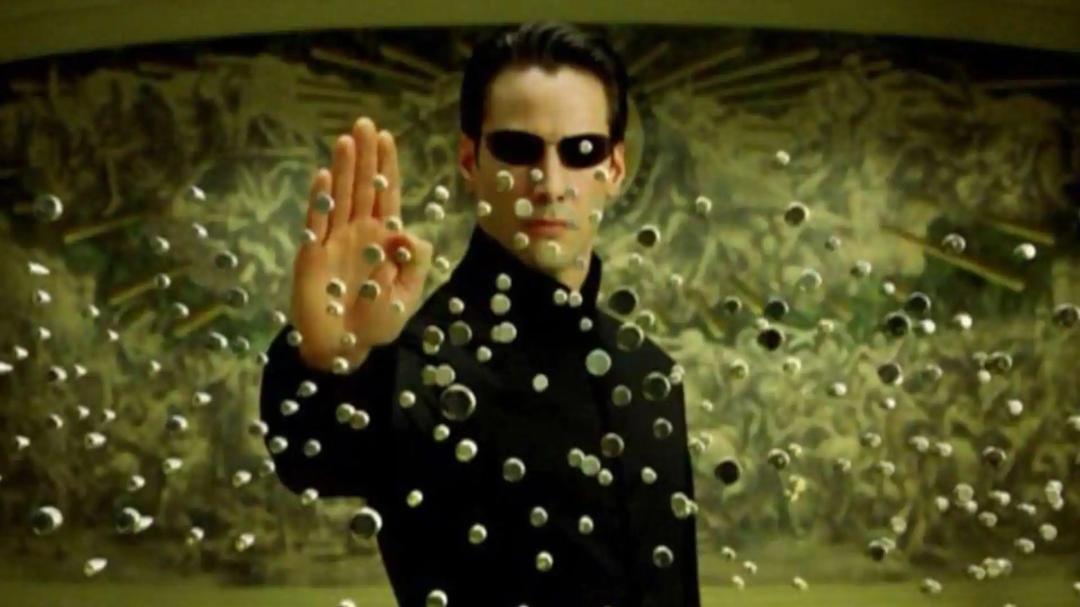
Physicists prove universe isn’t a computer simulation like in ‘The Matrix’
The idea that our universe is a computer simulation, popularized by the iconic sci-fi movie “The Matrix,” has been a topic of debate among physicists and philosophers for years. The concept, also known as the “Simulation Hypothesis,” suggests that our reality is a complex simulation created by a more advanced civilization. However, physicists from the University of British Columbia Okanagan (UBCO) have recently mathematically proved that this idea is unlikely to be true.
According to a press release from UBCO, the researchers have demonstrated that the universe is not a computer simulation, but rather it’s built on “a type of understanding that exists beyond the reach of any algorithm.” This breakthrough discovery was made possible by the team’s innovative approach to understanding the fundamental laws of physics and their relationship with space and time.
The study’s co-author explained that “fundamental laws of physics cannot be contained within space and time, because they generate them.” This statement highlights the complexity and intricacy of the universe, which cannot be reduced to a simple computational model. The researchers’ findings suggest that the universe is a much more sophisticated and dynamic system than previously thought, and it cannot be replicated by a computer simulation.
The Simulation Hypothesis has been a topic of interest in recent years, with some notable figures, such as Elon Musk, suggesting that the probability of our reality being a simulation is quite high. However, the UBCO study provides a mathematical framework that challenges this idea and offers a new perspective on the nature of reality.
The researchers’ approach focused on the concept of “computability,” which refers to the ability of a system to be simulated or computed by a Turing machine. They demonstrated that the fundamental laws of physics, such as quantum mechanics and general relativity, are not computable in the classical sense. This means that these laws cannot be reduced to a set of algorithms or computational procedures, which is a necessary condition for a computer simulation.
The implications of this study are far-reaching and have significant consequences for our understanding of the universe and its underlying laws. The researchers’ findings suggest that the universe is a much more complex and dynamic system than previously thought, and it cannot be replicated by a computer simulation. This discovery also raises important questions about the nature of reality and our place within it.
The study’s co-author noted that the findings “have significant implications for our understanding of the universe and its underlying laws.” The researchers’ work provides a new perspective on the relationship between physics, space, and time, and it challenges our current understanding of the universe.
In conclusion, the UBCO study provides strong evidence that the universe is not a computer simulation like in “The Matrix.” The researchers’ mathematical framework demonstrates that the fundamental laws of physics cannot be contained within space and time, and they generate them. This discovery highlights the complexity and intricacy of the universe, which cannot be reduced to a simple computational model.
As we continue to explore and understand the universe, it is essential to consider the implications of this study and its potential consequences for our understanding of reality. The UBCO researchers’ work provides a new perspective on the nature of the universe, and it challenges us to think beyond the boundaries of our current understanding.
The study’s findings also raise important questions about the limits of computational power and the ability of algorithms to simulate complex systems. The researchers’ work suggests that there are fundamental limits to what can be computed or simulated, and that the universe is a much more complex and dynamic system than previously thought.
In the end, the UBCO study provides a new perspective on the universe and its underlying laws, and it challenges us to think about the nature of reality in a new and exciting way. As we continue to explore and understand the universe, it is essential to consider the implications of this study and its potential consequences for our understanding of the cosmos.
News Source: https://news.ok.ubc.ca/2025/10/30/ubco-study-debunks-the-idea-that-the-universe-is-a-computer-simulation/






